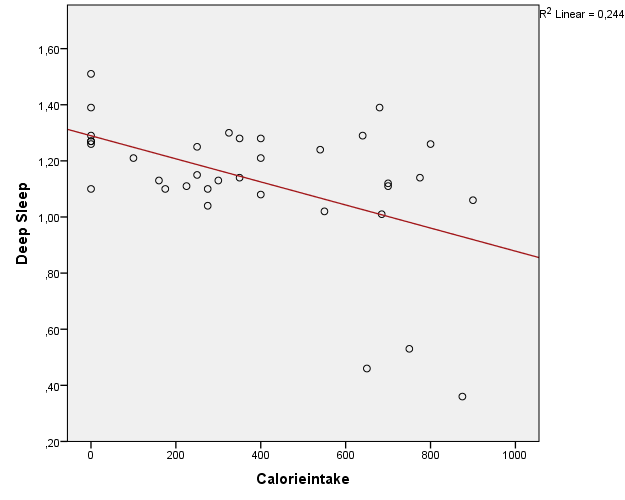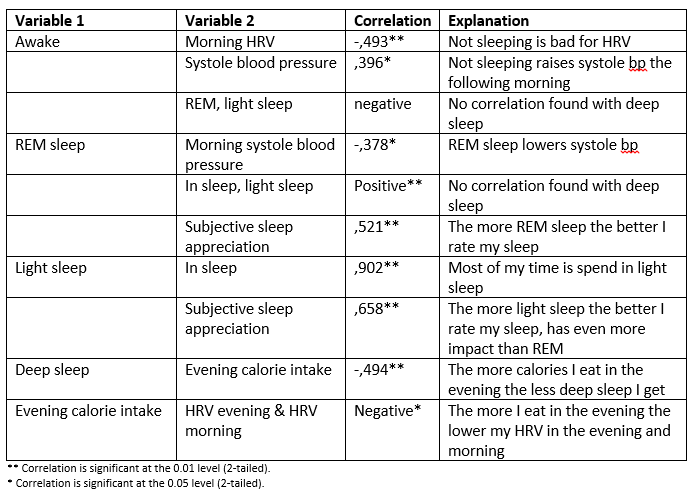Let me start with some characteristics of my sleep pattern. My mean hours of actual sleep is 7.19, of which 20.4% is REM sleep, light sleep 60.1%, deep sleep 15.7%. According to the Emfit QS website my REM sleep is on the low end and my light sleep on the high end needed for complete recovery. I suppose that’s why I often don’t feel really fit when I get out of bed. On average I spend 7.89 hours in bed.
I’ve been looking at the correlations between the sleep and context variables, using data from 35 nights. I’ve also included some other variables that I’ve measured during the same period. I’ll discuss some of the significant correlations I’ve found.
There are some surprises here. Eating in the evening doesn’t seem to be the healthiest thing to do. It lowers my HRV and prevents deep sleep. I’ve stopped eating after diner.

The effect of sleep on blood pressure was also an eye-opener. When I sleep better the blood pressure lowers again.
My subjective sleep appreciation correlates positively and highly significant with all sleep phases and the time spend in bed as well as actually sleeping. It has no correlation to deep sleep though. I’ve heard people say that this is the main determinant for their perceived sleep quality. For me this seems to be just sleeping. To crank up my REM and light sleep I should allow myself to spend more hours in bed, there is a strong correlation.
All the other variables don’t affect my sleep. This could be due to them not occurring very often/not every night. I’ve looked at overall stress and happiness. They don’t seem to be connected to any of the sleep parameters. Happiness is positively correlated to the minutes I work out. This is of course often demonstrated in research but it was nice that it sneaked into this unrelated dataset.
Contrary to what I expected the following variables have no significant bearing on my sleep phases: social activity, meditation and evening screen time. Meditation I usually do in the mornings so I can imagine that the effect wears off. But screen time doesn’t affect my sleep contrary to what is claimed. Maybe that’s because I watch boring stuff 😉
